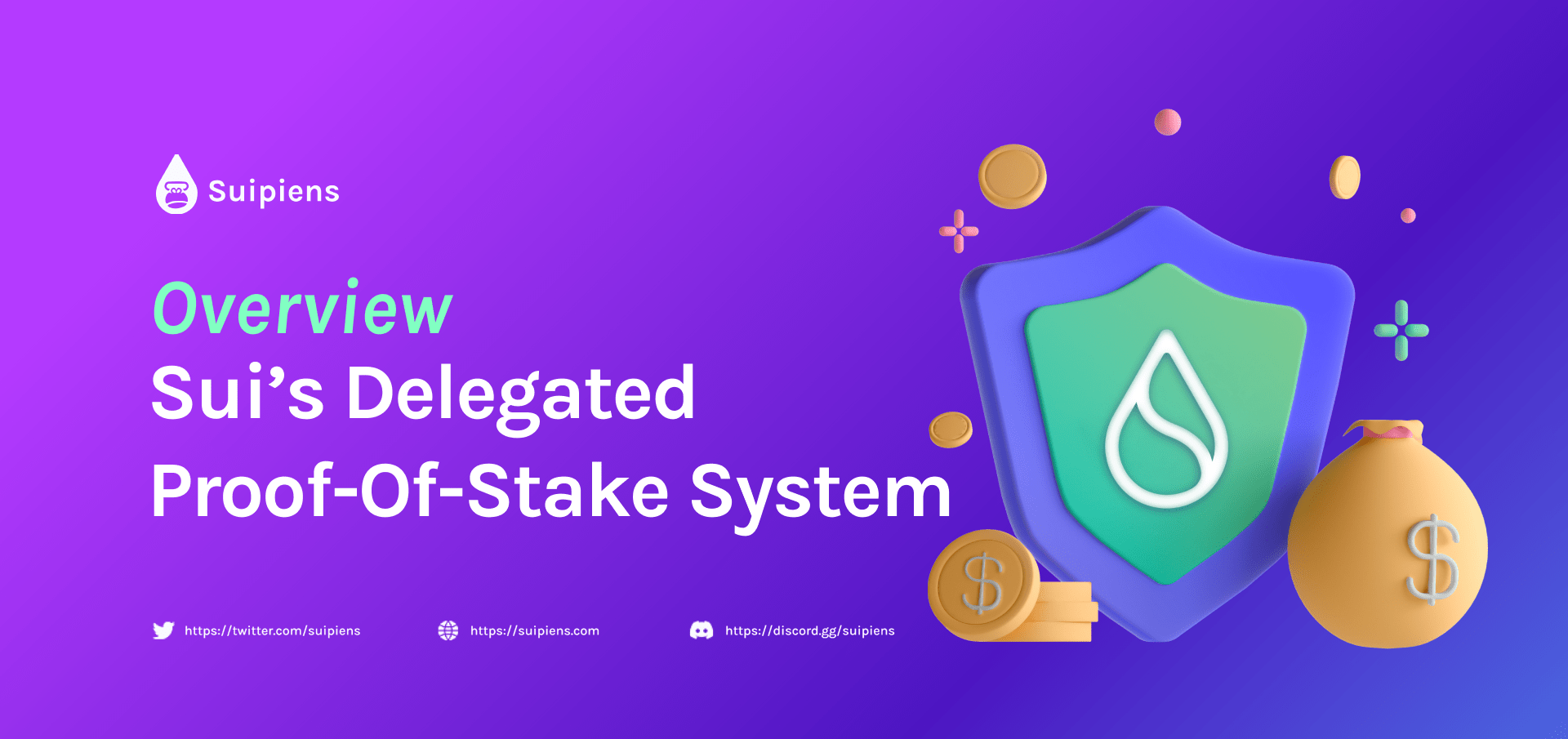Overview: Sui’s Delegated Proof-of-Stake System

Learn about Sui's efficient DPoS system for blockchain scalability. Discover stake rewards, gas prices, and user incentives in our blog.
Blockchain technology has been gaining traction in recent years, with many industries looking to harness its potential for secure, decentralized systems. However, one of the biggest challenges facing blockchain is scalability. As more users join the network, the cost and time required to process transactions can increase significantly, making it less feasible for widespread adoption.
To address this challenge, Sui has developed a Delegated Proof-of-Stake (DPoS) system, which is a more efficient and cost-effective way of processing transactions on the blockchain. In this blog, we'll explore how Sui's DPoS system works and how it incentivizes users and validators to operate in the most efficient and cost-effective way possible.
How Does Sui’s DPoS System Work?
In Sui's DPoS system, there is a fixed set of validators who process transactions within each epoch. Validators are selected based on their share of the total stake, which is determined by the amount of Sui tokens that are staked to them by Sui token holders.
During each epoch, users submit transactions to the Sui platform, and validators process them. Validators are rewarded based on their performance, and the amount of reward they receive is based on the stake they have accumulated and the efficiency with which they operate.
At the end of each epoch, stake rewards are distributed to participants of the proof-of-stake mechanism. These rewards are calculated based on the total amount of stake accrued throughout the epoch and the epoch's stake reward subsidies. Validators with more stake earn more rewards, and validators who operate efficiently and at fair prices are compensated with boosted rewards relative to less responsive validators.
Sui's DPoS system is designed to incentivize validators to provide a reliable and efficient platform for users to submit transactions while ensuring that they are fairly rewarded for their efforts.
Sui's Economic Model
Sui's economic model is designed to incentivize users and validators to operate in the most efficient and cost-effective way possible. Sui token holders can stake their tokens to validators, and validators earn rewards based on their performance. The storage fund's size is adjusted based on the previous epoch's net inflow, and stake rewards are distributed to validators to compensate them for their storage costs.
In addition, Sui's gas price mechanism encourages validators to set low gas fees while operating with viable business models. Validators with low gas price quotes are compensated with boosted rewards, but if their gas fees are too low, they receive slashed rewards. This incentivizes healthy competition for fair prices, where validators strive to set the lowest gas fees possible while operating efficiently.
*As a complementary reference, see the Staking and Tokenomics diagram in the Sui Tokenomics overview.
Sui's Incentives
Sui's incentives involve giving users a crucial monitoring responsibility within its economic model. Users have a strong desire to have their transactions processed swiftly and effectively, and therefore prioritize communication with the most responsive validators through their user clients, such as wallets. As a result, validators who perform their duties efficiently are rewarded more highly than those who are less responsive.
Stakers of Sui tokens, who have chosen a specific validator, receive the same rewards or penalties as that validator. If a validator doesn't respond, they will face consequences in two ways. Firstly, they will earn less rewards. Secondly, users may take their tokens and give them to more responsive validators, resulting in the validator losing stake in future epochs.
Closing thoughts
In conclusion, Sui's Delegated Proof-of-Stake system offers an innovative economic model that encourages fair pricing, healthy competition, and efficient operations for both validators and users. The system's unique approach makes it particularly appealing to community members who wish to become validators, and the Sui Delegation Program offers a convenient way to do so. Overall, Sui's DPoS system represents a promising development in the blockchain space, and its economic model could serve as a model for future blockchain systems
Be sure to check out Suipiens' website and social media channels to stay up-to-date on all things about Sui Blockchain!

